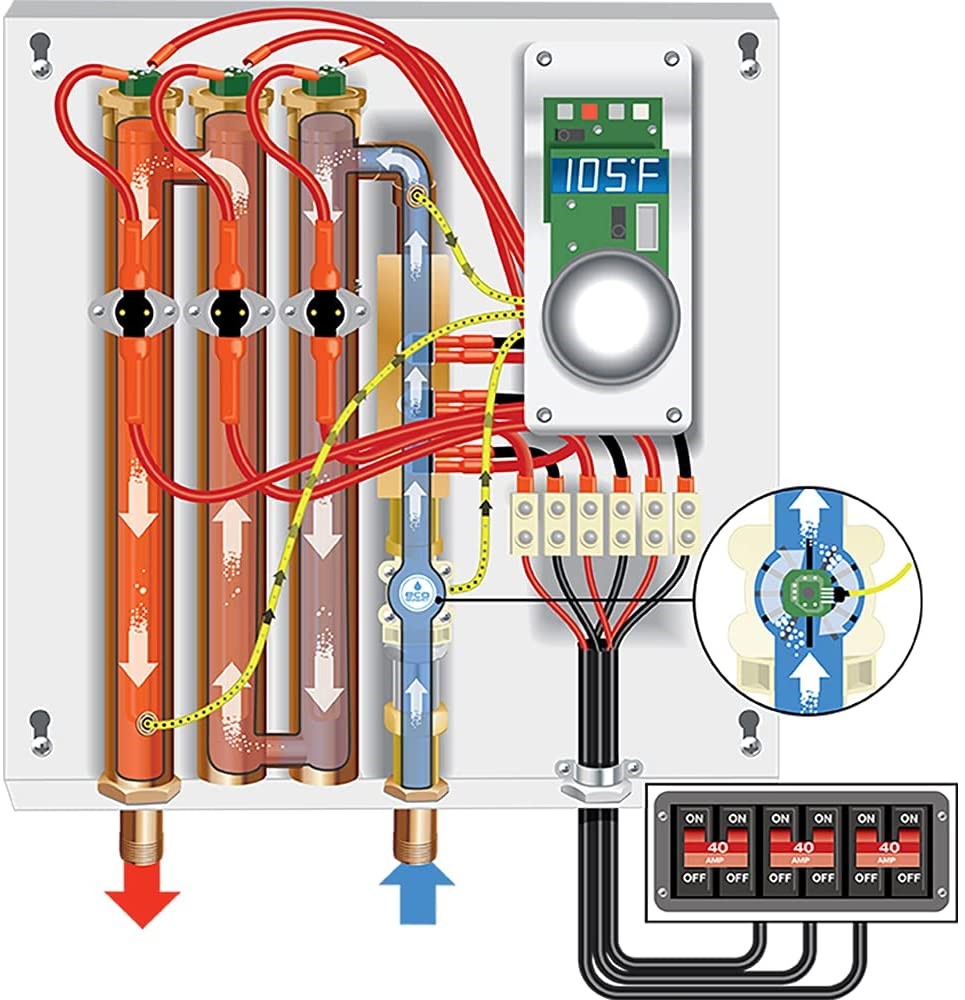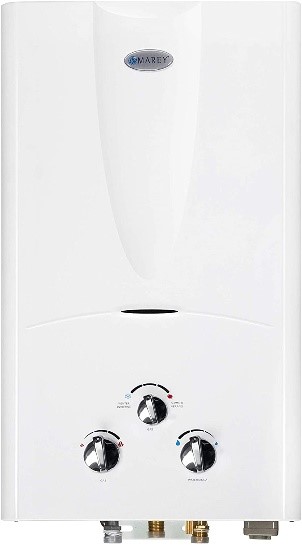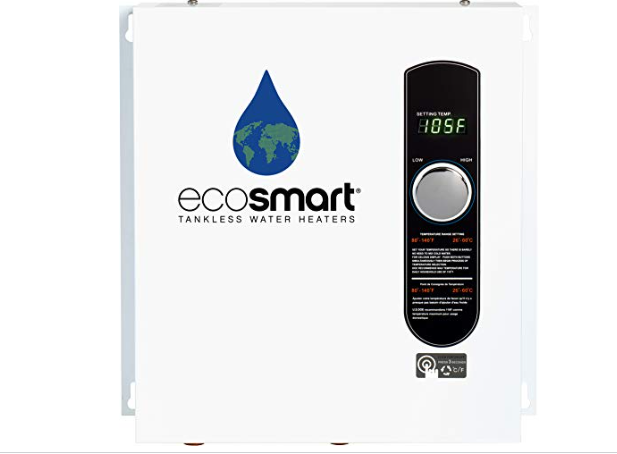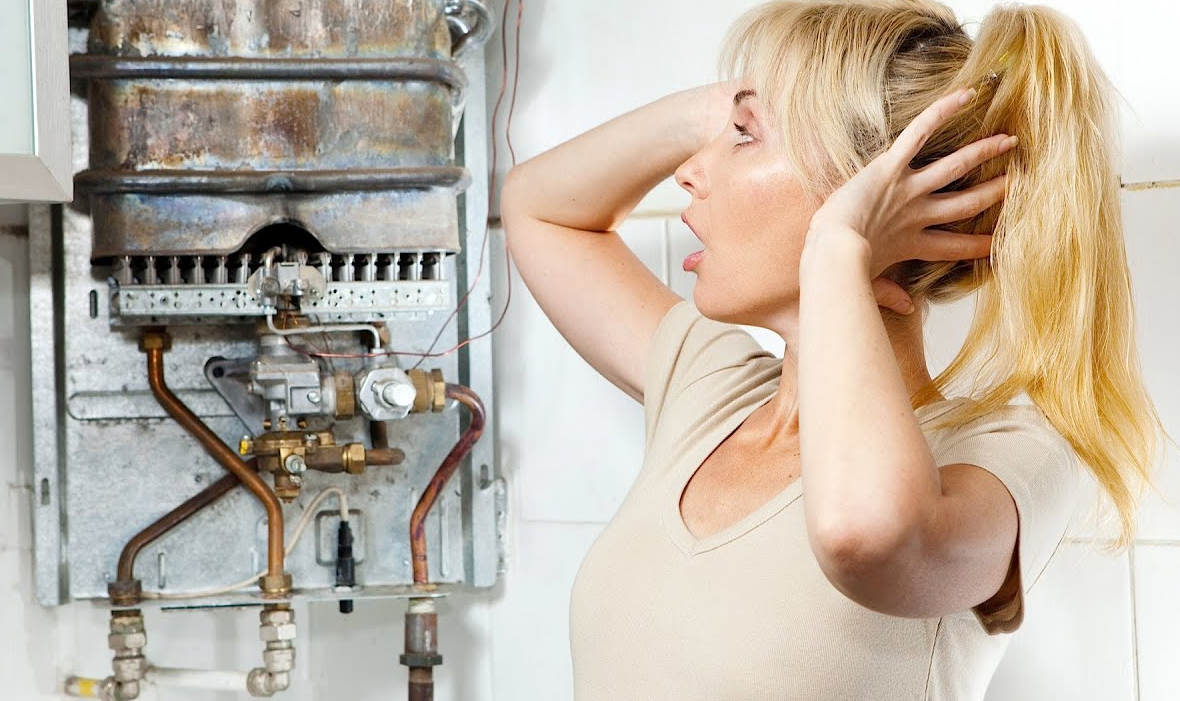Why does my water heater make a bubbling sound? Although the sound of a bubbling water heater may seem frightening, it is not usually a cause for concern. To figure out what’s wrong with your water heater, you’ll need to learn more about the water heater tank’s purpose and how gas-fired water heaters work in general, and what kinds of noises they make.
After reading the article, you should understand why does my water heater make a bubbling sound?
What Causes the Bubbling Noises?

Sediment, scale, calcium, and lime deposits accumulate on the bottom of the water heater tank over time. When these deposits heat up, steam forms within them, resulting in the popping sound. It is not harmful, but it can be irritating at times.
Instead, it’s most likely your water heater, which is the part of your HVAC system that most closely resembles a cauldron. The tank accumulates calcium and lime. There’s nothing you can do about it! On the other hand, water becomes trapped beneath the calcium and lime layer. Then, because your burner is near the bottom of the tank, as the water begins to heat up and bubble, it is trying to rise above the calcium and lime deposits; this results in bubbling and boiling noises (similar to a coffee machine) or rumbling noise.
1 – Rumbling
Sediment build-up is a common problem with hot water tanks, especially if you live in a region where hard water is prevalent. Mineral deposits build up inside the tank, causing a variety of issues. When the hot water in the tank heats up and expands, it pushes the sediment to the top of the tank, causing the silt to slide against the sides and bottom, causing a rumbling sound.
Experienced DIYers may be able to remove the silt by flushing and draining the hot water tank with a long hose or by using a scrubbing bubbles solution to break down limescale within the tank. However, if you are unfamiliar with plumbing, they recommended that you hire a professional plumber to flush the tank once a year.
2 – Maintenance
It’s also good to double-check the temperature settings, as high temperatures might cause popping sounds. Draining the water heater may help alleviate the popping noises by flushing out some of the sediments accumulated in the bottom region. Manufacturers of water heaters recommend that this be done regularly to help extend the unit’s life. Once a year is frequently recommended. Another advantage is that the fewer deposits in the water heater, the more efficient the water heater is at heating the water, saving you money on your water heating expense.
It does not always need water heaters to be replaced. Your water heater’s age, how often it has been flushed, and the hardness of the water are all factors.
3 – Popping
An example of popping and rumbling is sediment build-up in the tank. Under the sediment, steam bubbles form and explode as the water warms up, creating the sound. Chemicals like descaling have quick results in removing limescale and minerals. Still, flushing and draining the tank to eliminate any built-up sediment may be preferable.
Additionally, popping sounds can occur if an aluminum anode rod inside the tank is exposed to excessive alkalinity. A plumber can replace the aluminum anode rod with a magnesium anode rod.
4 – Old Water Heater
The sounds could indicate that your water heater is getting old and nearing the point when it has to be replaced. Some purchasers receive a one-year home warranty when purchasing a home, which covers the water heater if it breaks down during the first year of ownership. Another factor to consider is that contemporary water heaters are more energy-efficient, so replacing one could reduce costs.
5 – Knocking
The term “water hammer” is familiar to most people: It’s a banging or hammering sound made by the plumbing system when water is forced to abruptly halt or shift course, causing a pressure surge within the system. Water hammer has the potential to rupture pipes in residence and cause the water tank to expand and deform. Contact a plumber for assistance and consider installing a hydraulic pressure arrestor or pressure-reducing valve to handle repeated concerns.
6 – Ticking
Water pressure can affect ticking noises in and around the water tank, efficiency-boosting thermal trap nipples, and loose pipe straps. The good news is that most of these causes aren’t real issues that need to be addressed.
Changes in water pressure that are not frequent or dramatic (such as rapid entry and exit of the main building control valve) will not harm the system. Similarly, heat trap nipples that improve efficiency genuinely improve the usability of the water heater, albeit if the ticking sound is too much to bear, it can replace these parts with non-heat trap nipples.
Although loose pipe straps aren’t a significant concern, it’s a good idea to tighten or replace them to avoid further damage. There will be no ticking sound, and the pipes will not shift. Reducing the temperature by a few degrees may limit pipe expansion and eliminate ticking noises.
How Often Is The Gurgling Of A Water Heater?
Although it is a typical problem, including why does my water heater make a bubbling sound it can sometimes be fixed by simply changing a part of a setting, but which settings?
A gurgling sound in your hot water tank could indicate too much scale in the tank. Water heaters have an average lifespan of ten years, to begin with. However, it is not uncommon for a water heater to be in good functioning but still make gurgling noises.
Most water heaters are located near the living space except for split or Monoblock thermodynamic water heaters. This equipment is substantially noisier than a dishwasher or dryer, regularly operating at roughly 50 dB. If your electric water heater breaks down, this loud noise becomes uncomfortable. The noise made may not be audible all of the time. It frequently rises during high domestic hot water demand periods, especially if you set it to turbo mode.
How to Repair a Bubbling Water Heater
Whatever it sounds like to you, it’s not only deafening, unpleasant, and a little creepy, but it’s also possibly hazardous! The tank may burst, inflicting thousands of dollars in damage! You might, however, flush your water heater tank by yourself.
Your water heater may be making a frightening bubbling noise in your home! We’ll show you how to empty your water heater and get rid of the bubble step by step!
Step 1:
If you have a gas-powered water heater, locate the thermostat towards the bottom of the tank and turn it off. If you have an electric water heater, turn off the circuit breaker. Voila!
Step 2:
(Only with MAREY GA10LP gas water heater) Buy on Amazon

If you’re using a gas engine, you’ll need to take an extra step: turn off the gas valve.
Step 3:
Disconnect the cold water supply. We usually find this near the top of the water heater, but you’ll be able to spot it because it’s usually blue (cold).
Step 4:
Turn on at least one faucet in your house so that empty water lines don’t create pressure while draining the tank.
Step 5:
Connect a hose to the hot water heater’s spigot before turning it on and allowing the water to drain to the hose’s end (ideally outdoors)!
Step 6:
Please return to the cold water valve and turn it back on to see what the tank water looks like. Take a look at the water gushing out of the hose’s end. Does it appear to be precise? Yes, most likely! But that doesn’t rule out the possibility of silt build-up. Water probably does not contain calcium and lime. But that doesn’t mean they weren’t present! Allow the water to drain completely, and you’ve finally solved your water heater’s bubbling noise problem!
Step 7:
Your last steps comprise undoing what you’ve just done: turning off the spigot and unscrewing the hose. Then go ahead and shut off the water supply (the one you had turned on to prevent pressure in the waterline). At the same sink, turn on the hot water. It is solely to remove any extra air from the line. Remember, you should only get cold water from that sink since it has turned your heater off. Turn off the water in the sink. Then return to your hot water heater and re-open the gas valve!
There were several “steps within steps,” but your water heater is now back to where you left it. Now all that remains is to turn it on.
Step 8:
Restart your brand-new water heater, such as the Ecosmart Electric Tankless Water Heater. If you have a gas water heater, turn the thermostat to “on,” or if you have an electric water heater, turn the breaker box switch to “on.” Buy on Amazon

Step 9:
Give the new water in your tank a chance to warm up before proceeding. Then, make sure your hot water is working by turning it on. Hopefully, the bubbling sounds have subsided! You should do this once or twice a year, so why not do it around Halloween? You’ll never hear the “bubbling brew” again if you keep up with this routine maintenance.
Is This a Serious Issue?
When the pressure within your water heater tank builds up, you’ll hear gurgling noises. This build-up comprises minerals from hard water that form silt in the reservoir, causing the walls to scale.
When this happens, the tank cannot flush and filter as efficiently as possible. It is why it creates gurgling noises as it tries to work. It’s harmful not only for your water tank but also for your electrical costs. Your water heater works harder than usual to heat less water, wasting energy and costing you more money.
Avoid the Bubbling Issue in the Future
It’s a lot easier to prevent this problem than to solve it. There are two techniques to keep sediment from accumulating in your water heater:
- A water softener or filter: they can install a water softener or filter before the water heater to remove sediment before it enters the heater. Ensure it installed the softener before the water heater’s supply line.
- Maintenance: Regardless of how hard or soft your water is, your water heater needs to be maintained. However, regular maintenance is especially vital if your water heater is prone to silt buildup. Cleaning the water heater regularly can help prevent the issue.
Conclusion
Why does my water heater make a bubbling sound? It’s a strange, bubbling sound that makes you worry if your water heater has broken or spirits haunt your home. It’s both less creepy and more normal than you may assume. All you have to do now is figure out what’s causing the bubbling sound in the first place, and you’ll be able to get rid of it (if you want). So, why does my water heater make a bubbling sound? To find out, read on. Take pleasure in your reading!
Frequently Asked Questions
A: Leaking tank water, a defective pressure relief valve, murky water, popping noises, and a lack of hot water are indicators that your water heater will blow up. An explosion from a hot water heater can cause death, serious injury, and property damage.
Home water heater explosions do happen, and they can be deadly. Electric and gas tank water heaters can explode, especially those neglected.
Most households should clean their water heaters every six months, but you may want to flush them more frequently if you have hard water. Depending on the mineral level of your local water supply, you may need to flush your hot water heater every few months.
